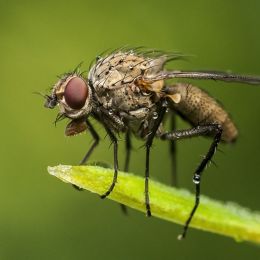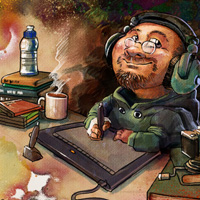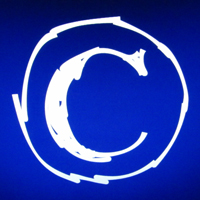- photo contests ▼
- photoshop contests ▼
- Tutorials ▼
- Social ▼Contact options
- Stats ▼Results and stats
- More ▼
- Help ▼Help and rules
- Login
Detailed Lesson On Macro and Close-ups - Photography Tutorial

This tutorial will introduce you to basic macro photography. Most of the images on this site were taken with a Canon PowerShot S3. When accessory lenses are needed, we typically use either a Raynox DCR-250 or a Raynox MSN-202 close-up lens. We'll try to cover various lighting techniques. Some of the images you'll see have obvious mistakes. We'll offer suggestions to keep you from making the same mistakes. Since this site is going to cover mainly basic macro-photography on a budget, we'll try to show you how to get the most of the on-board flash. This means that you'll see lots of different home-made flash diffusers.
submitted: 5 years and 3889 days ago
1 comment(s) | submitted by: Guest | Views: 603
Chapter 12: Your Own Business - Photography Tutorial

As a business person marketing your photos you will need to run a chart of accounts and use a financial software package that will keep control of your debtors and creditors. Invoice and statement forms are necessary to good business.
submitted: 5 years and 3890 days ago
0 comment(s) | submitted by: Guest | Views: 195
Chapter 11: Marketing your Work - Photography Tutorial

Stock photography libraries are places where buyers come looking for suitable images. Buyers will be looking for a site that is easy to navigate and are more then prepared to pay a fair price for excellent images.
submitted: 5 years and 3890 days ago
1 comment(s) | submitted by: Guest | Views: 189
Chapter 10: Freelance Tips - Photography Tutorial

Once a photographer has gained the creative and technical skills to take excellent photos in demanding situations the move into business can be a natural progression.
submitted: 5 years and 3890 days ago
0 comment(s) | submitted by: Guest | Views: 320
Chapter 9: Press Photography - Photography Tutorial

One of the best ways to become an experienced and efficient photographer is to work for a newspaper. The demands and variety of work will see you develop excellent time management and social skills highly necessary in all areas of photography. The work is varied and challenging and sometimes travel is required.
submitted: 5 years and 3890 days ago
0 comment(s) | submitted by: Guest | Views: 155
Chapter 8: Types of Photography Tips and Marketing - Photography Tutorial

Tired of all the techy stuff? Lets go back to the more creative side of Photography for a while and get down to business.
submitted: 5 years and 3890 days ago
0 comment(s) | submitted by: Guest | Views: 219
Chapter 7: Raw Files and Raw Converters - Photography Tutorial

RAW files are the true digital negatives!
The better SLR (Single Lens Reflex) camera systems can save photos to a memory card in a format unique to that make and model of camera. These are called RAW files.
What is the difference between JPEG and RAW files?
submitted: 5 years and 3890 days ago
0 comment(s) | submitted by: Guest | Views: 187
Chapter 6: Image Editing Software - Photography Tutorial

In the days of film the professional and the keen amateur photographer would spend a lot of time in the dark room working with chemicals to create wonderful photographs. The developing labs seen all over the world were established and developing film became easy and affordable. In resent years we have seen the advent of digital photography and huge changes in the way a photographer deals with images. A digital computer and a good colour printer have replaced the dark room.
submitted: 5 years and 3890 days ago
0 comment(s) | submitted by: Guest | Views: 186
Chapter 5: Lighting Systems - Photography Tutorial

Flash units can are driven from the camera body and synchronize with the shutter to balance the exposure. It is the way we use the flash that will either give us poor or pleasing photography. This is important!
submitted: 5 years and 3890 days ago
1 comment(s) | submitted by: Guest | Views: 254
Chapter 4: Exposure and How it Works - Photography Tutorial

A correctly exposed photograph will be one where the optimal amount of light will fall on the focal plane. Exposure on to film will create an image just as it does in for each individual pixel on our digital CCD. Too much light and the highlights will be blown out and the picture will be washed away in white light. Too little light and the image will be dark and less colourful. Correct exposure is a balance between shutter speed, which lets light in over a period of time, and aperture, which is a hole that depending on the size, will allow more or less light to enter the light tight box on our camera.
We know you already know this, if you have come this far with this ebook.
Let's go on and enjoy a more detailed explanation.
submitted: 5 years and 3890 days ago
0 comment(s) | submitted by: Guest | Views: 180






